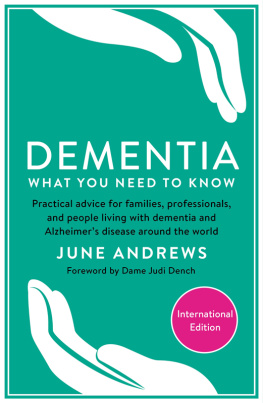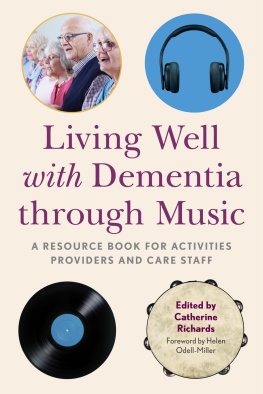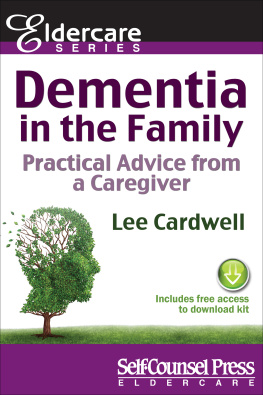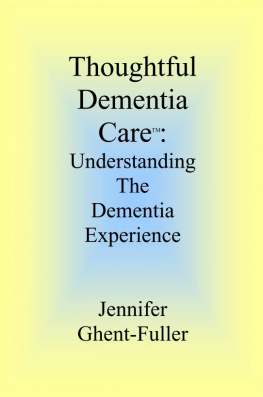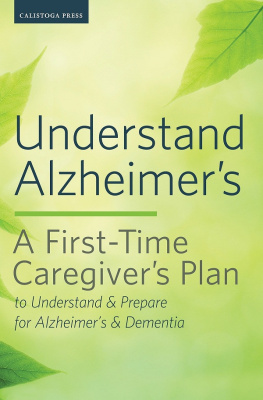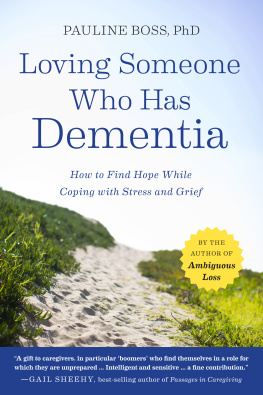Jean Rawitt is a former executive in book publishing, marketing, public relations, and fundraising. She trained in geriatrics education at the Hunter/Mount Sinai Geriatrics Education Center and went on to develop volunteer programs for Mount Sinai Hospital in New York City, including one for high school volunteers, to help offset the negative effects of hospitalization on the frail elderly. Rawitt is also author of Volunteering: Insights and Tips for Teenagers (Rowman & Littlefield, 2020).
Beard, Patricia. Good Daughters: Loving Our Mothers as They Age. New York: Warner Books, 1999.
Berman, Clair. Caring for Yourself While Caring for Your Aging Parents: How to Help, How to Survive. New York: Henry Holt and Company, 1996.
Byock, Ira. Dying Well: The Prospect for Growth at the End of Life. New York: Riverhead Books, 1997.
Kolf, June Cerza. Comfort and Care in a Final Illness: Support for the Patient and Caregiver. Tucson, AZ: Fisher Books, 1999.
Lamm, Maurice. The Jewish Way in Death and Mourning. Middle Village, NY: Jonathan David Publishers, 1969.
Mace, Nancy L., and Peter V. Rabins. The 36-Hour Day: A Family Guide to Caring for Persons with Alzheimer Disease, Related Dementing Illnesses, and Memory Loss in Later Life. Baltimore, MD: Johns Hopkins University Press, 1999.
Miller, B. J., and Shoshana Berger. A Beginners Guide to the End: Practical Advice for Living Life and Facing Death. New York: Simon and Schuster, 2019.
Nuland, Sherwin B. How We Die: Reflections on Lifes Final Chapter. New York: Vintage Books, 1995.
Peterson, Monte. The Geriatrics Primer: An Interdisciplinary Guide to Working with the Elderly. Hunter/Mount Sinai Geriatric Education Center. Monte Peterson, series editor. Cleveland, OH: Advanstar Communications, 1995.
Quill, Timothy E. Caring for Patients at the End of Life: Facing an Uncertain Future Together. New York: Oxford University Press, 2001.
Dementia is the loss of cognitive functioningthinking, remembering, and reasoningand behavioral abilities to such an extent that it interferes with a persons daily life and activities. These functions include memory, language skills, visual perception, problem-solving, self-management, and the ability to focus and pay attention. Some people with dementia cannot control their emotions, and their personalities may change. Dementia ranges in severity from the mildest stage, when it is just beginning to affect a persons functioning, to the most severe stage, when the person must depend completely on others for basic activities of living.
S ir Terry Pratchett, world-renowned author of the Discworld series, wrote of his own experience with dementia: Its a nasty disease, surrounded by shadows and small, largely unseen tragedies. People dont know what to say unless they have it in the family.
Some people describe the changes in memory that take place in dementia as being like Swiss cheese, with different-sized holes perforating the memory like the holes in the cheese. Others liken it to a chalkboard, in which whatever is written on the board continually gets erased from the bottom up. Whatever the picturesque description used to describe the memory loss of dementia, there is no question that it is devastating and has an impact on every aspect of daily life.
What dementia is not, is a normal part of aging. Although, as people age, muscles grow weaker, bones may become more brittle, and people tend to slow down, they do not necessarily fall victim to the progressive cognitive losses of dementia. They may think or process information more slowly than when they were younger, and they may occasionally forget things, but for many people, while those issues might be frustrations of daily life, they do not signal the more profound, inexorable, and debilitating onset of dementia. The most significant factor in the difference between the changes of normal aging and symptoms of a disease is when the cognitive issues interfere with a persons ability to function in daily life.
Most cases of dementia are diagnosed after age sixty-five; however, it is not solely a disease of old age. Some two hundred thousand cases of dementia per year occur in people in their 40s or 50s; these are generally considered cases of early-onset dementia. Therefore, while it can occur in middle-aged people, most cases are seen in people of more advanced age.
Although Alzheimers disease may be what most people think of when they think of dementia, as it accounts for about 60 to 70 percent of cases, there are other forms of dementia. In addition to Alzheimers disease, these include vascular dementia, Lewy body dementia, and fronto-temporal dementia it is possible for someone to have more than one of these at the same time. The causes and symptoms of these forms of dementia are somewhat different, but symptoms can include, in addition to memory loss, changes in personality and behavior, losses in language, confusion, and changes in sleep patterns. People may also experience dementia as a result of a side effect of medication, a vitamin deficiency, or a thyroid condition; luckily, these forms of dementia are generally reversible if treated appropriately.
True dementia, however, is not yet curable. While there are some treatments that have been shown to help slow the progress of the disease in some people and there are some medications that can help ease some of the symptoms, at this time there is no known cure. Scientists throughout the world are working on many different approaches to finding a cure because dementia is a devastating problem worldwide. Some exciting areas of research that scientists are working on include developing new drugs that may target the causes of dementia, exploring the impact of inflammation on the development of dementia, and studying how dietary or caloric restriction may serve as a way to either prevent or slow the course of the disease.
While finding ways to prevent, slow, or cure the progress of Alzheimers disease and other forms of dementia is tremendously important, until ways to do that are found, it is also vital to find better ways to care for people with dementia on a daily basis. Much research is being done to find ways to improve the quality of life for people with dementia, including in such areas as environmental design, personal care, individual decision-making, how certain words and language can impact feelings of isolation and stigma for people with dementia, and even how virtual reality can be used to help improve the quality of life for people with advanced dementia.
OPPORTUNITIES TO PARTICIPATE IN RESEARCH
The National Institute on Aging supports research at major medical institutions through the Alzheimers Disease Research Centers (ADRCs). Scientists at the ADRCs are working on finding a way to cureor even preventAlzheimers disease, as well as ways to improve diagnosis and care for people with Alzheimers disease. There are opportunities through the ADRCs for peopleboth healthy individuals and people with symptoms of the diseaseto participate in research studies. In addition, there are support groups for patients and families.).
HATTIES STORY: HOW A YOUNG WOMAN BECAME INVOLVED IN DEMENTIA RESEARCH
Hattie has always been drawn to community service, volunteering through school programs even as a young girl. When she was in middle school, she joined an after-school program called Sweet Readers, which trains middle-school students to engage with older people with dementia in art projects as a way to enhance and expand intergenerational connections and understanding. After participating in the Sweet Readers program for a year, Hattie decided she wanted to continue working with people with dementia and volunteered at a neighborhood senior center that had a daycare program for people with moderate to severe dementia.




